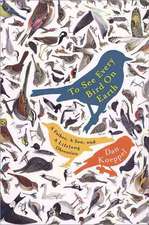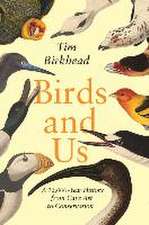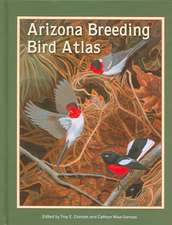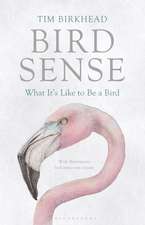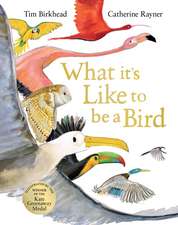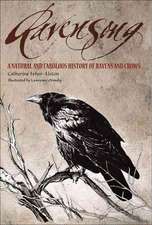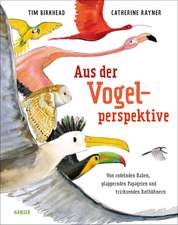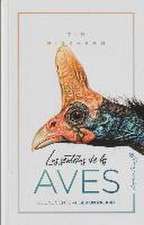The Red Canary: The Story of the First Genetically Engineered Animal
Autor Tim Birkheaden Limba Engleză Paperback – 29 ian 2014
Preț: 71.17 lei
Preț vechi: 94.44 lei
-25% Nou
Puncte Express: 107
Preț estimativ în valută:
13.62€ • 14.10$ • 11.51£
13.62€ • 14.10$ • 11.51£
Carte tipărită la comandă
Livrare economică 06-20 martie
Preluare comenzi: 021 569.72.76
Specificații
ISBN-13: 9781408847060
ISBN-10: 140884706X
Pagini: 288
Ilustrații: illustrations
Dimensiuni: 129 x 198 x 22 mm
Greutate: 0.26 kg
Editura: Bloomsbury Publishing
Colecția Bloomsbury Paperbacks
Locul publicării:London, United Kingdom
ISBN-10: 140884706X
Pagini: 288
Ilustrații: illustrations
Dimensiuni: 129 x 198 x 22 mm
Greutate: 0.26 kg
Editura: Bloomsbury Publishing
Colecția Bloomsbury Paperbacks
Locul publicării:London, United Kingdom
Caracteristici
Reissued with a beautiful new jacket
Notă biografică
Tim Birkhead is a professor at the University of Sheffield where he teaches animal behaviour and the history of science. He is a Fellow of the Royal Society of London and his research has taken him all over the world in the quest to understand the lives of birds. He has written for the Independent, New Scientist, BBC Wildlife. Among his other books are Promiscuity, Great Auk Islands, The Cambridge Encyclopaedia of Birds which won the McColvin medal, and most recently, Bird Sense. He is married with three children and lives in Sheffield.
Recenzii
Rich in historical detail, studded with curious characters - some of them human - and brimming with scientific insights. The Red Canary reads like a fine novel
Takes a small episode from history and draws a surprisingly important lesson from it, in an elegant and diverting way
His grasp of the science involved is to be expected from a professor of behaviour and evolution. What is more surprising is his capacity to make it not just comprehensible but fascinating, but making his own genetic cross of science, philosophy, history, sociology and narrative
Takes a small episode from history and draws a surprisingly important lesson from it, in an elegant and diverting way
His grasp of the science involved is to be expected from a professor of behaviour and evolution. What is more surprising is his capacity to make it not just comprehensible but fascinating, but making his own genetic cross of science, philosophy, history, sociology and narrative



